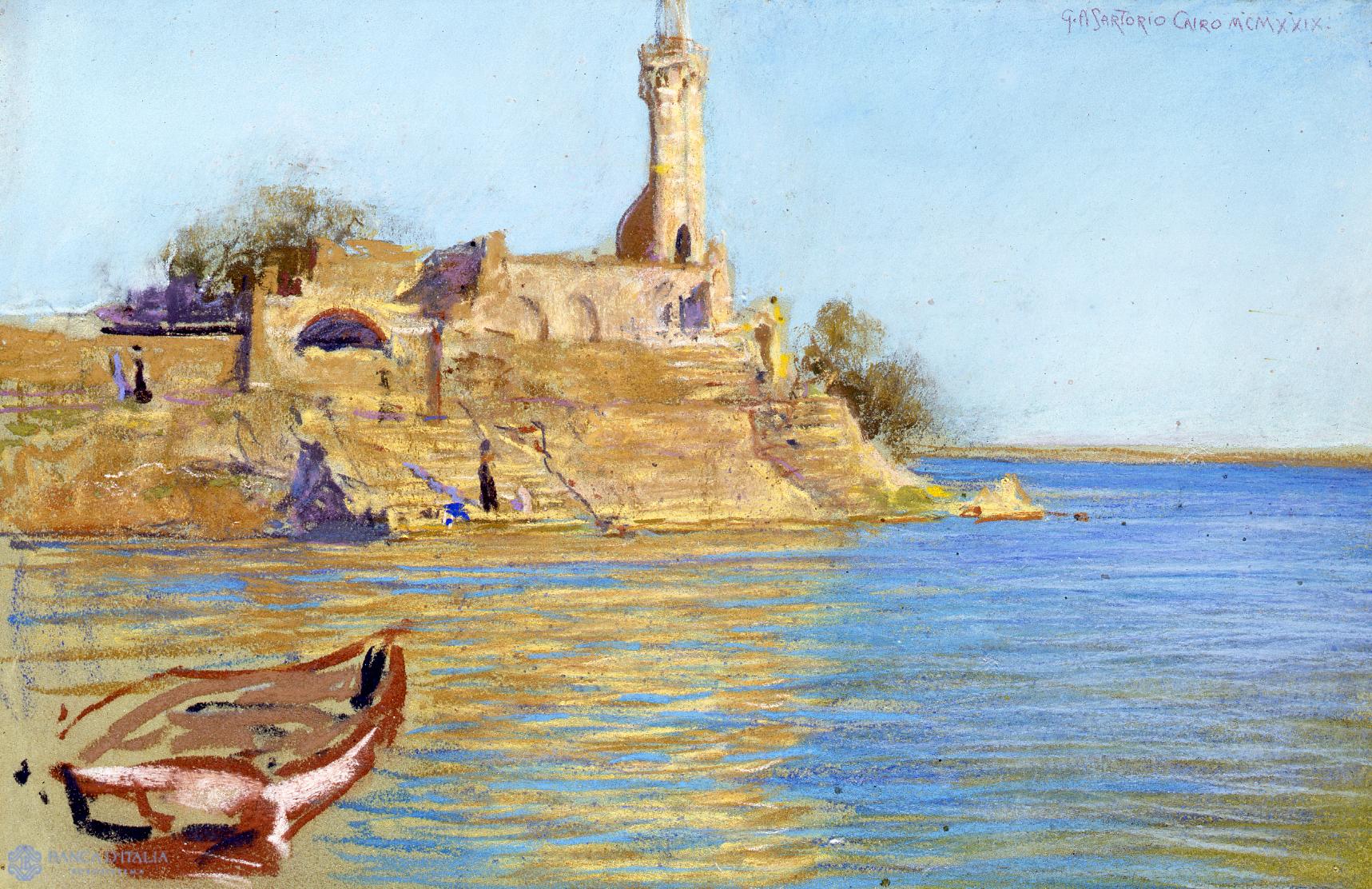Giulio Aristide Sartorio was born in Rome in 1860 and died there in 1932. He was the son and grandson of sculptors and, from the start, he was attracted by the virtuosity of Fortuny. In 1882 he presented his painting Malaria which marked his passage to a brief period of socialist, humanitarian Verismo. In 1883 he worked for the review Cronache Bizantine and met Gabriele D’Annunzio with whom he developed a longstanding friendship, which influenced his artistic vision. The review was surrounded by that refined and elegant climate in which Sartorio became increasingly involved with the group In Arte Libertas, a movement which predicated a return to the Italian tradition in counterposition to the excessive enthusiasm of Impressionism.
After Cronache Bizantine, he worked on the review Il Convito, which also leaned towards aestheticism while introducing a dominating symbolic component and an exalted cult of beauty, suggesting a fusion between art and life. This influenced Sartorio’s painting and he produced a series of illustrations for the new review and collaborated with D’Annunzio with work for the Isotta Guttadauro. At the same time he produced a tryptich representing the wise and foolish virgins (Trittico delle vergini sagge e delle vergini folli) a work in which the artist reveals his inclination towards the linear style of the Pre-Raphaelites and Rossetti. He was influenced by his friendship with Paolo Michetti, embracing for a brief period the Nuovo Paesismo style of representing the wild nature of the Roman countryside. Nevertheless the painter basically kept his ties with symbolism of a literary nature, the main example of which was his dyptich La Diana d’Efeso e gli schiavi, La Gorgone e gli eroi, produced in 1899.
He taught at the Weimar Academy from 1895 to 1900 and then he produced some large-scale decorative cycles for the Esposizione Internazionale in Milan, the Venice Biennale and lastly for the Chamber of Deputies of the Rome Parliament at Montecitorio, a great symbolic work inspired by the history of Italy.
Giulio Aristide Sartorio
Giulio Aristide Sartorio (Rome 1860 - Rome 1932)
20th century AD

Compiler
Augusta Monferini




